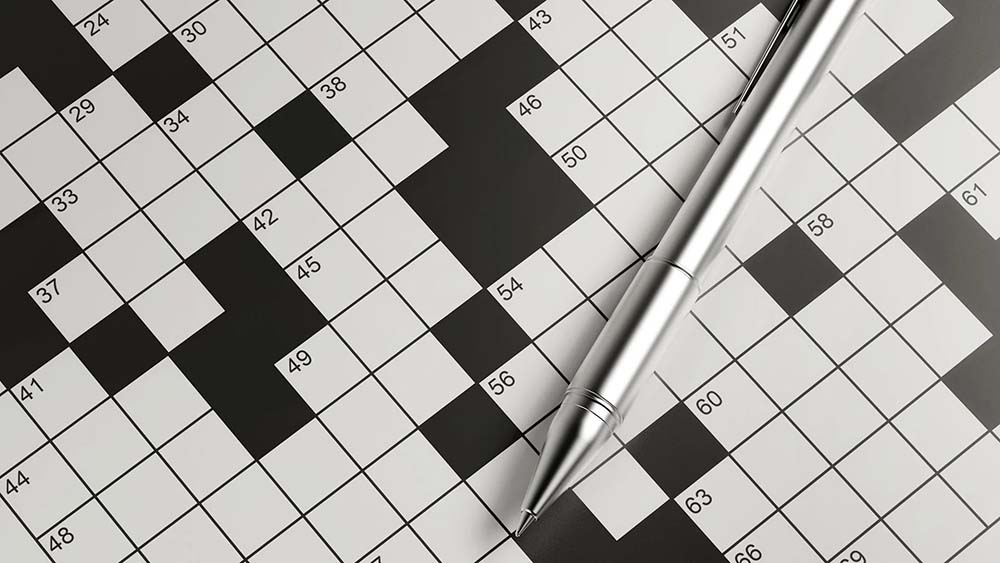Crossword puzzles are enjoyable for many individuals due to their challenging nature and entertaining attributes. A few clues tend to be more creative or brilliant than the rest. When Doubled a Mild Reprimand is one of the most intriguing phrases that has appeared in numerous crosswords, including those by the New York Times (NYT), which is famous for having tough clues. In this article, we will look at what this clue implies, its origin, and its significance in the crossword puzzle world.
Understanding The Clue: When Doubled A Mild Reprimand
At first glance, When Doubled a Mild Reprimand may seem cryptic, but it represents typical wordplay found in crossword puzzles, which makes them attractive. To unlock this clue, one must recognize that doubling certain words reveals phrases that indicate light rebuke or criticism. An answer involves repeating a single term to form an expression used in gentle scolding or correcting someone else’s behaviour.
For example, ‘tut’ fits perfectly here; when repeated, it becomes ‘tut-tut’, which is mild disapproval or reproach shown whenever necessary among friends, let alone strangers. Thinking outside the box is often required while working with crosswords since they involve playing with words and idioms.
Wordplay In Crossword Puzzles
The thing about crossword puzzles is that they can simultaneously be frustratingly tricky and immensely satisfying because of their wordplay elements. Clues such as When Doubled a Mild Reprimand force you to think beyond literal meanings of words; instead, they ask you to consider how these meanings might change if manipulated or twisted around somehow – revealing hidden truths beneath surface levels of understanding, thereby making solving them much more complicated than anticipated initially.
The New York Times Crossword is famous for using wordplay in clues. Solvers enjoy figuring out these cleverly crafted hints, ranging from mildly amusing to sneaky. When Doubled a Mild Reprimand represents the kind of linguistic creativity that keeps people hooked on crosswords.
The History Of The NYT Crossword
To fully grasp what When Doubled a Mild Reprimand means as a clue, one needs some background information about the New York Times crossword puzzle. During World War II, the New York Times started publishing its own daily crossword puzzle in 1942, and it quickly became popular among its readership, who would solve it every day without fail throughout subsequent years, even after the war ended. This hobby provided mental exercise and entertainment value while being easily accessible through newspaper format.
Will Shortz has been editing puzzles for The New York Times since 1993 and is mainly responsible for modernizing crosswords. Over the years, he has introduced new themes, techniques and structures that have made them more challenging and fun to solve than ever before, especially with his unique sense of humour, which often involves word plays such as When Doubled a Mild Reprimand – but all this came after long history filled with many successes failures so far continuing strong each morning when millions open paper hoping to see another incredible creation from one America’s most beloved entertainments.
Solving Puzzles Can Improve Mental Skills
Doing crosswords like those found in the NYT is an enjoyable way to spend time; it also helps keep your brain sharp by working out different cognitive processes used when solving problems. For example, When Doubled a Mild Reprimand touches on various aspects of memory recall, reasoning ability, and vocabulary building. Depending upon how fast or slow you are in figuring out the answer, meaning may require more effort than others, ultimately leading to better mental health and overall satisfaction knowing you could complete something challenging successfully.
A survey revealed that mind exercises like word games are helpful to the brain, especially those belonging to older adults. Memory can be enhanced through constant puzzle-solving; this also nurtures critical thinking and slows down the process of cognitive deterioration. For many individuals, crosswords intrigue them and improve their state of mind.
The social role of Crossword Puzzles
Crossword puzzles have become so popular in modern society that they can be found in newspapers, bookstores, TV shows — you name it! The New York Times crossword puzzle is one of the most iconic ones; its fans range from amateurs who solve them while drinking morning coffee to fast-paced tournaments where participants try to outpace each other. An annual American Crossword Puzzle Tournament founded by Will Shortz attracts entrants worldwide and illustrates just how much love there is for these brainteasers.
The clue When Doubled a Mild Reprimand represents a tiny piece of this phenomenon’s cultural impact. It shows off all that is clever about crosswords’ language playfulness and creativity with words like ‘doubled.’ Many people see this hint and feel joy because they know how satisfyingly tricky solving any part might feel.
Also Read: Dumpor
Conclusion: What Makes When Doubled a Mild Reprimand Charming?
In crossword puzzles, clues like When Doubled a Mild Reprimand hold unique places. They encourage solvers to think outside the box (or grid) and celebrate language subtleties. After many years of high-quality content creation, NYT Crossword continues to be a favourite pastime around the globe for everyone who loves riddles.
Whether you have experience solving these types of problems or just started trying your hand at them yesterday evening, encountering such a clue always makes me want to get involved immediately, so if I were stuck on anything else during my travels through this particular publication, then at least now, I could go back over everything with fresh eyes. So next time this clue catches your attention, remember its charm and take a moment to admire the art of creating puzzles like these.










